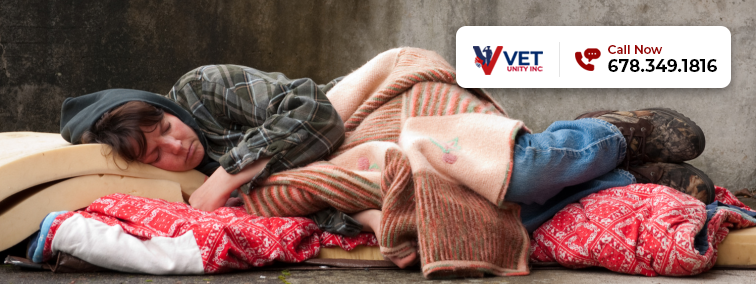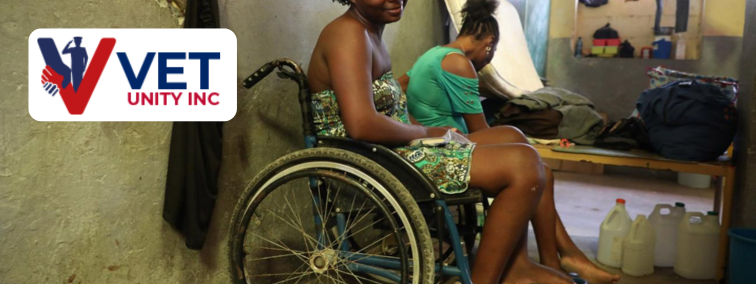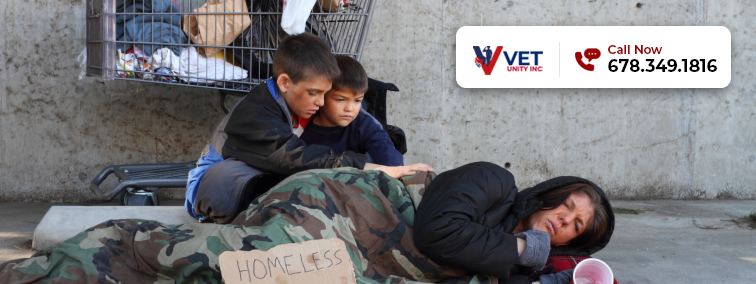From Service to Struggle: Understanding the Causes of Veteran Homelessness
Many brave US veterans have served our country, but too many of them are now jobless when they get home. Homelessness among veterans is a complicated problem with many causes. We can work toward answers that give our soldiers the help they deserve. We can do this if we understand these reasons.
In this article, we will discuss the causes of our veterans' homelessness. We will also understand their service's struggle.
Difficulties Reintegrating into Civilian Life
It might be difficult to make the transition from serving in the military to doing so in civilian life. Life in the military brings benefits. These include structure, discipline, and a strong sense of community. Veterans may have trouble finding these things in civilian life. It could make them feel alienated and confused.
Lack of Affordable Housing
Many veterans have a significant challenge in the form of the high expense of housing. Civilian wages might not keep up with rent's growing cost. It will happen if we don't count military pay. More hurdles may come up. They happen when trying to get stable housing for veterans. These veterans are disabled or struggle with mental health issues.
Untreated Mental Health Conditions
Veterans are more likely to have PTSD and other mental disorders. This is compared to the general population. This is especially true for those who have served in areas of conflict. Because of these issues. It may be hard to keep a career, relationships, and daily activities. Without proper care, veterans with mental health concerns are at high risk. They are at risk of becoming homeless.
Substance Abuse
Veterans often battle with post-traumatic stress disorder (PTSD) and other mental health issues. They commonly cope by self-medicating. Using drugs can make someone lose their job. It can also cause money problems and strained relationships. These issues can lead to homelessness. Addiction to alcohol and drugs can swiftly spiral out of control.
Limited Social Support Systems
Having strong social support networks is crucial for everyone. It is true for people going through difficulties. Veterans lack strong family or a supportive community. They may be more likely to be homeless. Frequent deployments may strain family ties. Veterans may not have had the chance to build strong social networks in civilian life. It was due to their service.
Inadequate VA Benefits
The VA provides veterans with many services and benefits. But, others believe the system is overworked. They think it can't always help quickly. Veterans are trying to navigate the VA bureaucracy. They may encounter long waits and complex applications. These issues may discourage them from seeking help.
Risk Factors for Veteran Homelessness
The likelihood of a veteran becoming homeless may be increased by a number of variables.
These include the following:
Combat experience: Veterans who served in conflict areas face a higher risk. They can develop post-traumatic stress disorder (PTSD) and other mental health issues. Military sexual trauma (MST): Veterans who have been exposed to MST are at a higher risk of developing mental health issues. They are also at risk of abusing substances and being homeless in their lifetime. Low-income jobs: Veterans have skills that don't transfer to the civilian job market. So, they may struggle to find well-paying jobs, which may hurt their ability to afford housing. Lack of education: Veterans without a college degree may have fewer job prospects. This can lead to financial problems. Chronic health conditions: Also, veterans with chronic health issues may have a hard time finding work. They may also face higher medical costs.
What Can We Do to Help Veterans?
We need a full solution to fix the issue. It is about veteran homelessness, which affects the whole nation. Below are some of the ways in which we may make a difference:
- Support veteran-specific programs: Veterans may get aid with housing, job training, and mental health services. Many organizations are designed to meet their needs.
- Raise awareness: The public should know about the challenges that veterans face. They should also know about the services available to help them.
- Advocate for policy changes: We must support policies. They aim to address the true causes of veteran homelessness. Two examples of such policies are measures to provide cheap housing. And, they offer greater financing for mental health services.
Veteran Homelessness: A Call to Action
All our veterans have served our nation well. They did so with great professionalism and dignity. It is our duty to make sure that they are given the help they need. It will help them move back into civilian life. They will also find safe, reliable housing. We can help veterans get the aid they are due. First, we must understand the causes of veteran homelessness. Then, we must take action.
Final Words
Even small acts of kindness can greatly impact a veteran's life. The veteran may be struggling to make ends meet. Consider giving to a charity that helps veterans. Or, volunteer at an organization that serves veterans.




